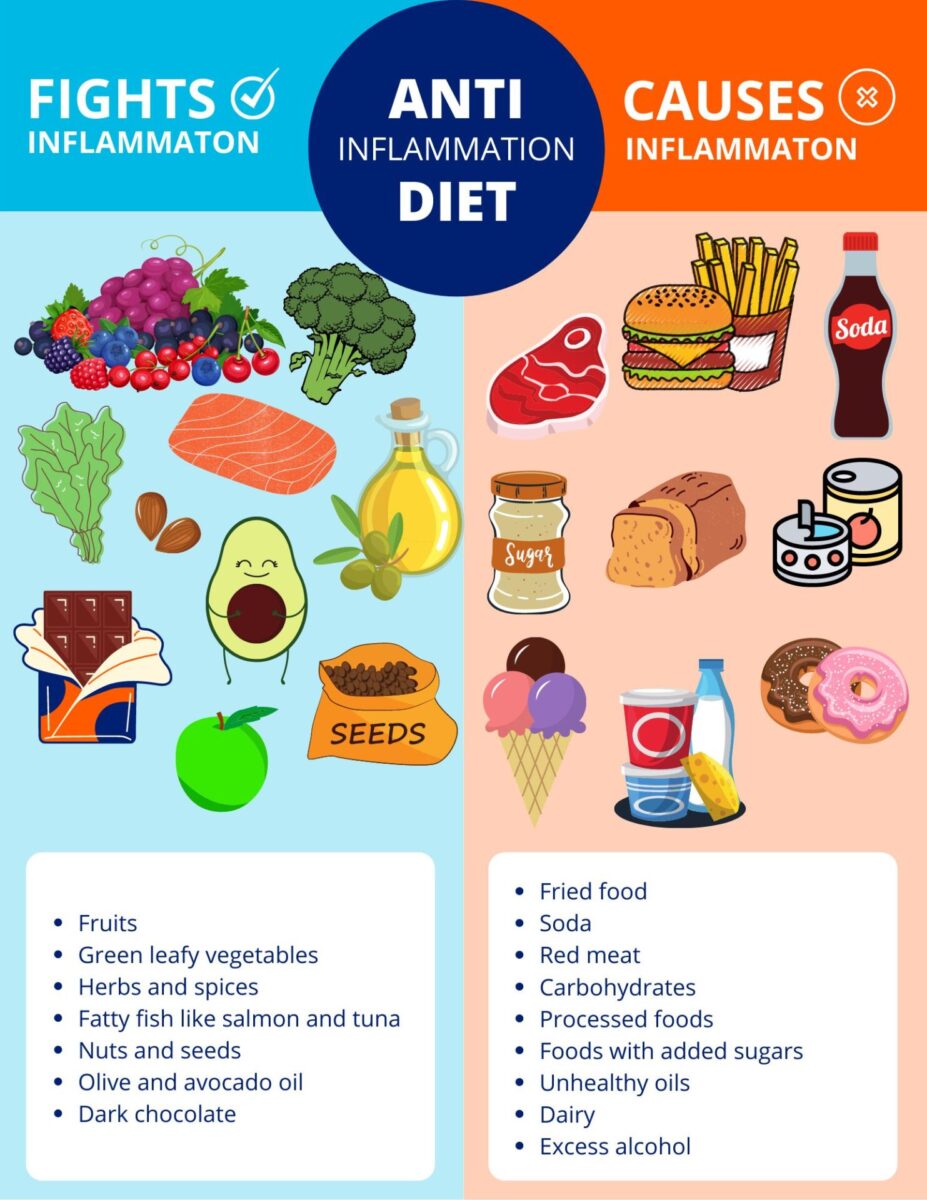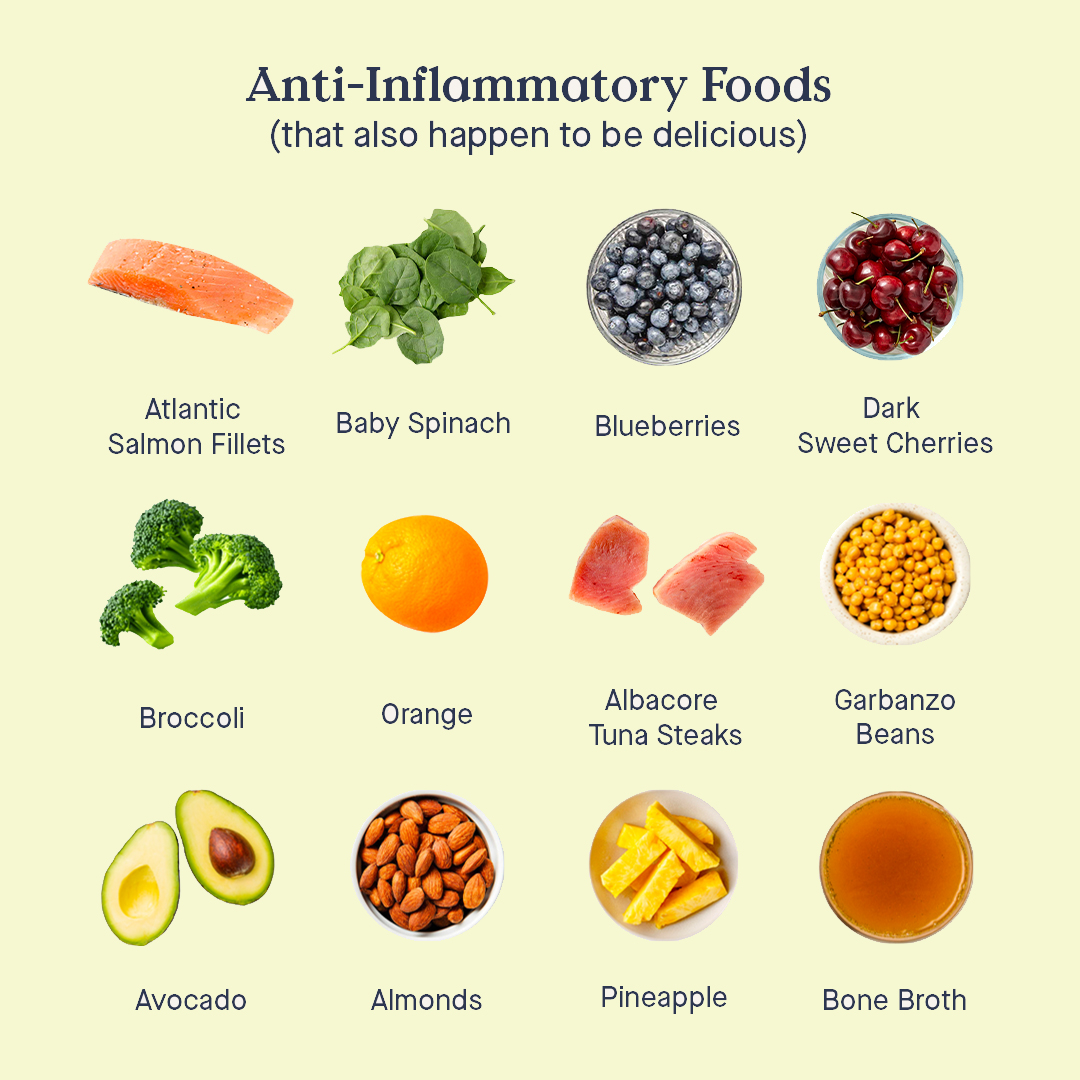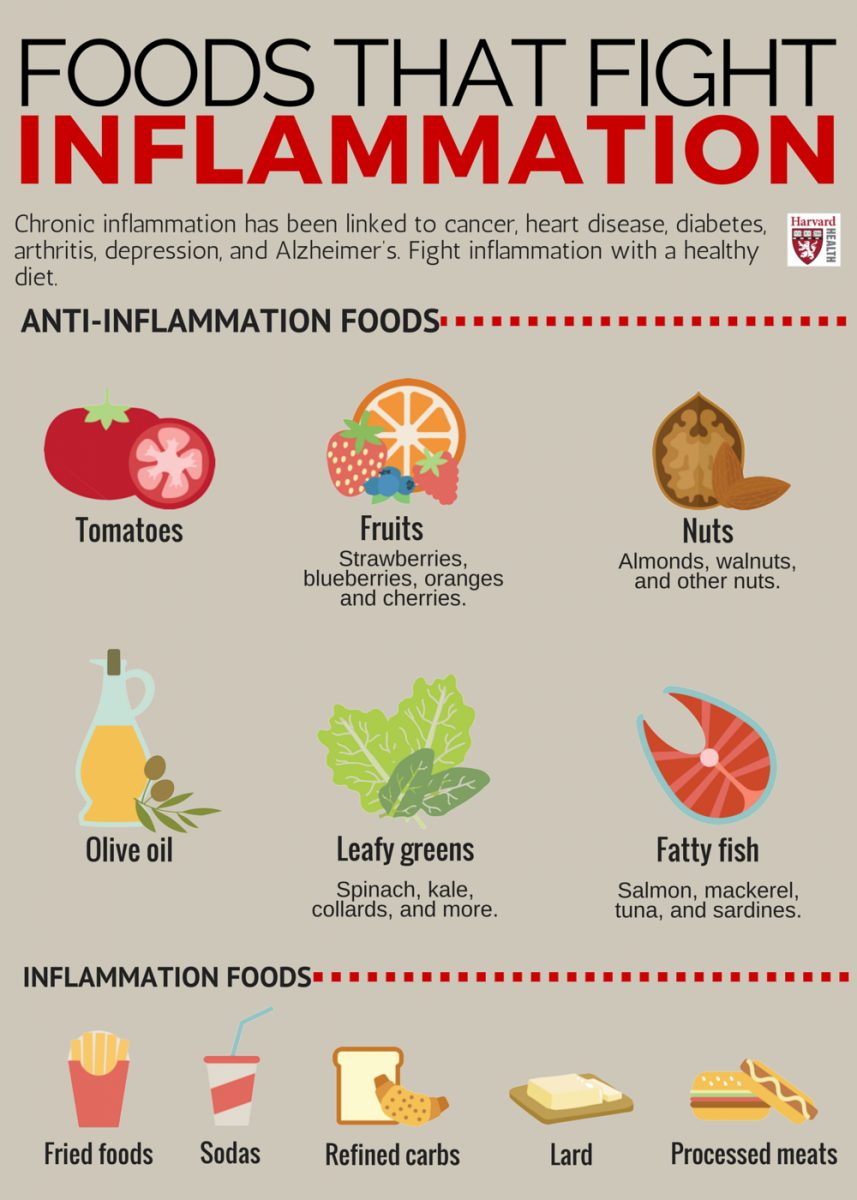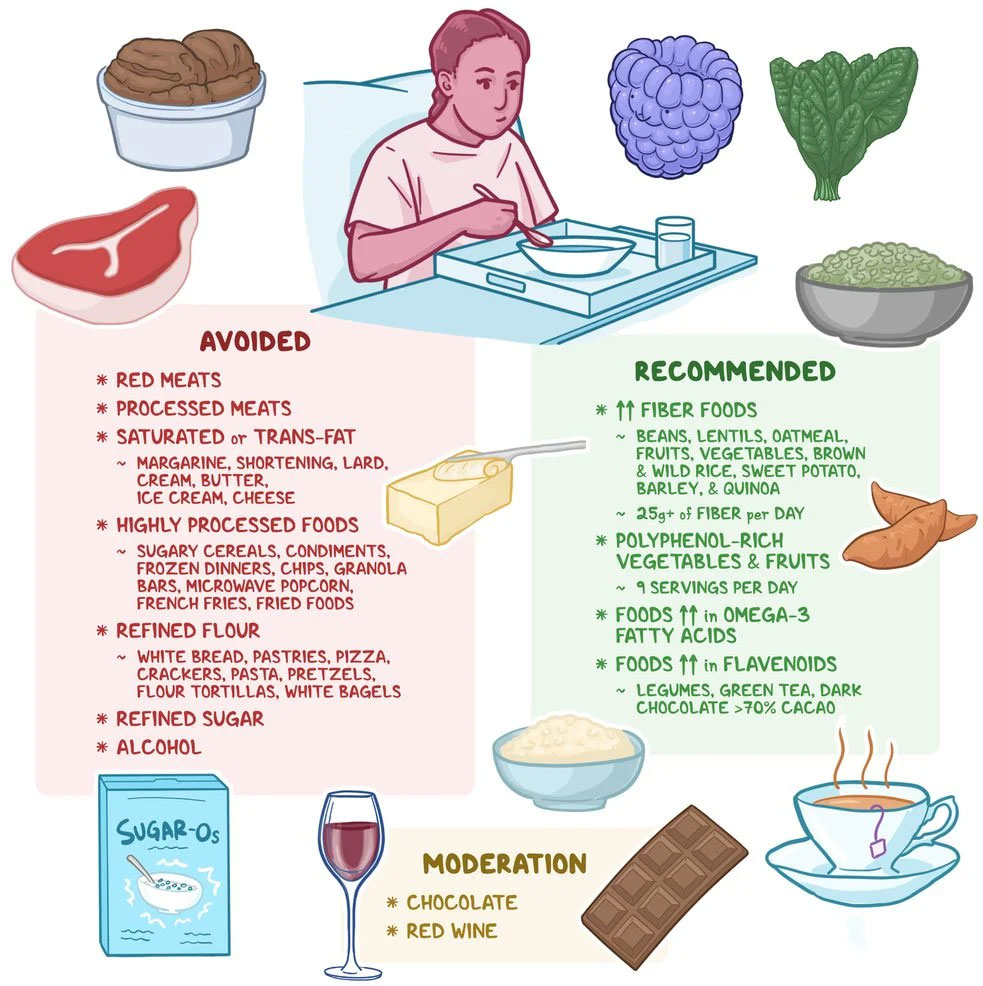Embracing a lifestyle of anti inflammatory eating can be a transformative journey for autoimmune warriors. With the right knowledge and ingredients, individuals can take charge of their health and combat the challenges of inflammation. By understanding the connection between diet and autoimmune diseases, you empower yourself to make impactful choices. Excitingly, this article explores essential foods, beneficial cooking methods, and meal planning tips that can elevate your well-being. Let’s dive into the world of nourishing foods that not only satisfy your palate but also support your body’s natural defenses!
Understanding Inflammation and Autoimmune Diseases
Inflammation plays a crucial role in the body’s immune response, helping to protect against infections and injury. However, in autoimmune diseases, this process takes an unfortunate turn. Instead of just attacking harmful invaders, the immune system mistakenly targets healthy cells, leading to chronic inflammation and tissue damage.
Some key points to consider include:
- Chronic Inflammation: Unlike acute inflammation, which serves as a protective mechanism, chronic inflammation can lead to ongoing pain and various autoimmune conditions, such as rheumatoid arthritis or lupus.
- Causes: Triggers of autoimmune inflammation can range from genetic factors to environmental influences, including infections, stress, and dietary components.
To combat these negative effects, anti inflammatory eating emerges as a powerful tool. This dietary approach emphasizes consuming foods that reduce inflammation, thereby supporting your immune system. Key elements of anti inflammatory eating include:
- Whole Foods: Focus on incorporating fresh fruits, vegetables, nuts, seeds, and whole grains, which are rich in antioxidants and anti-inflammatory compounds.
- Healthy Fats: Opt for sources like olive oil and fatty fish, which provide omega-3 fatty acids known for their anti inflammatory benefits.
- Avoiding Processed Foods: Steering clear of sugar, refined carbohydrates, and overly processed snacks can help manage inflammation effectively.
By understanding the connection between inflammation and autoimmune diseases, you can make empowered choices for your health through anti inflammatory eating. This mindful approach not only alleviates symptoms but also promotes overall well-being.

The Principles of Anti-Inflammatory Eating
Embracing anti inflammatory eating empowers individuals, especially autoimmune warriors, to manage their symptoms effectively. Understanding the core principles behind this dietary approach is essential to navigate your food choices wisely. Here are the key principles to follow:
- Focus on Whole Foods: Prioritize unprocessed, nutrient-dense foods. Fresh fruits, vegetables, whole grains, and lean proteins provide the body with essential vitamins and minerals that combat inflammation.
- Healthy Fats Matter: Incorporating sources of omega-3 fatty acids, such as fatty fish, walnuts, and flaxseeds, supports an anti inflammatory response. Avoid trans fats and excessive saturated fats often found in processed foods.
- Choose Colorfully: Aim for a colorful plate! Foods rich in antioxidants—like berries, leafy greens, and bright vegetables—help reduce inflammation and support immune function.
- Limit Sugars and Refined Carbs: Cut back on added sugars and refined carbs. These can trigger inflammation and worsen autoimmune symptoms, so consider alternatives like whole grains and natural sweeteners.
- Mind Your Portions: Overeating, even healthy foods, can lead to inflammation. Practice portion control and eat mindfully to listen to your body’s signals.
Incorporating these principles of anti inflammatory eating will not only enhance your well-being but also create a sustainable lifestyle for managing autoimmune conditions. By choosing the right foods, you actively participate in your healing journey.
Essential Foods for Autoimmune Warriors
When embracing anti-inflammatory eating, it’s crucial to know which foods can empower and support your body. The right choices not only combat inflammation but also nourish your immune system. Here are some essential foods you should include in your diet:
- Fruits and Vegetables:
- Berries (blueberries, strawberries) are rich in antioxidants.
- Leafy greens (spinach, kale) provide essential vitamins and minerals.
- Healthy Fats:
- Avocados and olive oil contain monounsaturated fats, known for their anti-inflammatory properties.
- Nuts and seeds (walnuts, chia seeds) offer omega-3 fatty acids that can mitigate inflammation.
- Lean Proteins:
- Fatty fish (salmon, mackerel) are excellent sources of omega-3s.
- Skinless poultry and legumes also support muscle health while being easy on digestion.
- Whole Grains:
- Options like quinoa, brown rice, and oats are fiber-rich and help maintain a healthy gut, crucial for autoimmune warriors.
- Fermented Foods:
- Sauerkraut, kimchi, and yogurt enhance gut health, resulting in better nutrient absorption.
Incorporating these foods into your daily meals will enhance your journey toward anti-inflammatory eating, allowing you to thrive as an autoimmune warrior. Remember, consistency is key!
Nutrient-Dense Ingredients to Incorporate
In the quest for effective anti inflammatory eating, incorporating nutrient-dense ingredients is essential for boosting your health and fighting inflammation. Here are some powerhouse foods to add to your diet:
- Leafy Greens: Spinach, kale, and Swiss chard are rich in antioxidants and vitamins, helping to reduce inflammation.
- Berries: Blueberries, strawberries, and blackberries provide potent anti-inflammatory properties due to their high levels of polyphenols.
- Fatty Fish: Salmon, mackerel, and sardines are excellent sources of omega-3 fatty acids, which can significantly lower inflammation.
- Nuts and Seeds: Walnuts, chia seeds, and flaxseeds are packed with healthy fats, fiber, and protein, contributing to overall well-being.
- Cruciferous Vegetables: Broccoli, cauliflower, and Brussels sprouts contain compounds that help regulate immune function.
Here’s a simple comparison table to illustrate the benefits of these ingredients:
| Ingredient | Key Nutrients | Inflammation-Fighting Benefits |
|---|---|---|
| Leafy Greens | Vitamins A, C, K | Rich in antioxidants |
| Berries | Antioxidants | Reduces oxidative stress |
| Fatty Fish | Omega-3s | Lowers markers of inflammation |
| Nuts and Seeds | Healthy fats, protein | Supports heart health and lowers inflammation |
| Cruciferous Veggies | Sulforaphane | Enhances detoxification processes |
By integrating these nutrient-dense ingredients into your meals, you’ll enhance your anti inflammatory eating strategy, leading to improved overall health and well-being. Remember, a colorful plate not only looks appealing but also provides a range of essential nutrients that combat inflammation effectively!

Meal Planning for an Anti-Inflammatory Diet
Meal planning is an essential tool for anyone embracing anti inflammatory eating. It not only saves time but also helps you make healthier choices, especially when battling autoimmune conditions. A well-structured meal plan ensures you include a variety of nutrient-dense foods that support your body’s healing.
Here’s how to get started:
Steps for Effective Meal Planning:
- Outline Your Week: Dedicate time each week to plan meals. Consider breakfast, lunch, dinner, and snacks.
- Focus on Whole Foods: Incorporate fruits, vegetables, whole grains, lean proteins, and healthy fats. For instance:
- Fruits: Berries, apples, and citrus
- Vegetables: Leafy greens, broccoli, and bell peppers
- Proteins: Salmon, lentils, and nuts
- Healthy Fats: Avocado, olive oil, and chia seeds
- Batch Cook: Prepare larger servings of anti-inflammatory recipes you enjoy. This method saves time and prevents last-minute unhealthy food choices.
- Utilize a Grocery List: Write down necessary ingredients to ensure you stick to your anti-inflammatory eating goals during your shopping trips.
Sample Weekly Plan:
| Day | Breakfast | Lunch | Dinner | Snack |
|---|---|---|---|---|
| Monday | Oatmeal with berries | Quinoa salad | Grilled salmon | Almonds |
| Tuesday | Smoothie | Veggie stir-fry | Lentil soup | Carrot sticks |
| Wednesday | Chia pudding | Chickpea salad | Roasted veggies | Hummus and cucumbers |
| Thursday | Avocado toast | Turkey wrap | Stuffed bell peppers | Mixed nuts |
| Friday | Yogurt with nuts | Spinach salad | Zucchini noodles | Dark chocolate |
Incorporating these strategies into your meal planning will enhance your adherence to an anti inflammatory eating lifestyle. By being proactive, you empower yourself, making healthful choices easier. Enjoy the journey towards wellness!
Cooking Methods That Preserve Nutrients
When embracing anti inflammatory eating, the cooking methods you choose play a crucial role in maintaining the nutrients essential for combatting inflammation. By utilizing the right techniques, you can enhance the health benefits of your meals while keeping flavors vibrant and appetizing. Here are some effective cooking methods to consider:
- Steaming: This gentle method preserves vitamins and minerals that often leach away during boiling. Use it for vegetables like broccoli and spinach to maximize their antioxidant properties.
- Sautéing: Quick and effective, sautéing with a small amount of healthy fats, such as olive oil, retains nutrients while enhancing taste. Consider sautéing garlic and leafy greens—both excellent for anti-inflammatory eating.
- Roasting: Ideal for root vegetables and lean proteins, roasting at moderate temperatures helps maintain their nutritional integrity without adding excessive fats. Season with herbs like turmeric and rosemary to amplify anti-inflammatory benefits.
- Blanching: Briefly boiling vegetables and then plunging them into ice water retains their color, texture, and nutrients. This method works particularly well for green beans and asparagus.
Comparison of Cooking Methods
| Method | Nutrient Preservation | Flavor Enhancement | Best Foods to Use |
|---|---|---|---|
| Steaming | High | Moderate | Broccoli, carrots |
| Sautéing | Moderate | High | Garlic, bell peppers |
| Roasting | High | High | Sweet potatoes, chicken |
| Blanching | Moderate | Low | Green beans, spinach |
Incorporating these cooking methods into your regimen can significantly enhance your anti inflammatory eating journey, making meals both nutritious and flavorful.
The Role of Supplements in Autoimmune Health
Incorporating supplements can significantly enhance the benefits of anti-inflammatory eating for autoimmune warriors. While a well-rounded diet provides essential nutrients, some individuals may require additional support in managing their symptoms. Here are key supplements to consider:
- Omega-3 Fatty Acids: Known for their anti-inflammatory properties, they help reduce joint pain and stiffness. Aim for at least 1,000 mg per day.
- Vitamin D: Crucial for immune function, vitamin D can play a role in reducing autoimmune responses. A daily intake of 1,000-2,000 IU is often recommended.
- Probiotics: Maintaining gut health is essential for autoimmune patients. Probiotics help restore the balance of gut bacteria, improving overall immune response.
- Turmeric/Curcumin: This potent spice has powerful anti-inflammatory effects, making it an essential supplement for those seeking relief. Look for supplements with piperine for better absorption.
When considering supplements, remember to consult with a healthcare professional, as they can help tailor the best regimen based on your specific needs.
In conclusion, while anti-inflammatory eating forms the foundation of your health strategy, supplements can provide an extra boost in managing autoimmune conditions effectively. Embrace a comprehensive approach, combining diet with targeted supplementation for optimal results!

Mindfulness and Eating: A Holistic Approach
Incorporating mindfulness into anti-inflammatory eating offers a transformative approach for autoimmune warriors. It not only enhances your relationship with food but also helps you become more aware of how different foods affect your body. Here are some valuable insights:
- Practice Presence: Focus on your meal. Turn off distractions such as TV or smartphones. This allows you to savor flavors and textures, deepening your connection to what you consume.
- Listen to Your Body: Tune in to hunger cues. Are you eating because you’re hungry or out of habit? This self-awareness enables you to make better choices aligned with your anti-inflammatory eating goals.
- Slow Down: Chew your food thoroughly and take breaks between bites. Slowing down not only aids digestion but also gives you time to recognize when you’re full, preventing overeating.
- Gratitude Practice: Before meals, take a moment to express gratitude for your food. This simple act elevates your mood and fosters a positive mindset about nourishment, essential for those on an anti-inflammatory eating journey.
- Reflect Post-Meal: After eating, reflect on how the meal made you feel. Did it energize you or leave you sluggish? Over time, this reflection helps you identify foods that best support your health.
By integrating mindfulness into your anti-inflammatory eating routine, you create a holistic approach that nurtures both your body and mind, paving the way for greater well-being.
Success Stories: Transformations Through Diet
The impact of anti-inflammatory eating on the lives of autoimmune warriors is truly inspiring. Many individuals have experienced remarkable transformations by making conscious dietary changes. Here are a few notable success stories that highlight the power of this eating approach:
- Sarah’s Journey
After struggling with rheumatoid arthritis for years, Sarah adopted an anti-inflammatory eating strategy rich in omega-3 fatty acids. She incorporated fatty fish, walnuts, and flaxseeds into her meals. Within a few months, she noticed significant reductions in joint pain and stiffness, allowing her to reclaim her active lifestyle. - Mike’s Recovery
Diagnosed with Crohn’s disease, Mike embarked on an elimination diet. By removing gluten, dairy, and processed sugars, he embraced whole foods like fruits, vegetables, and lean proteins. As a result, Mike experienced fewer flare-ups and improved digestion, significantly enhancing his overall quality of life. - Emily’s Transformation
Living with lupus, Emily turned to anti-inflammatory eating by embracing a colorful variety of vegetables and spices like turmeric and ginger. After several months, she reported higher energy levels and diminished fatigue, enabling her to engage more fully with her family and hobbies.
These stories demonstrate that adopting an anti-inflammatory eating lifestyle can lead to powerful and positive changes, providing autoimmune warriors with the hope and vitality they seek.
Resources for Further Reading and Support
Embarking on your journey of anti-inflammatory eating can be both exciting and challenging. To support you along the way, numerous resources offer valuable insights and guidance. Here’s a curated list of options to help you deepen your understanding and stay motivated:
- Books:
- The Anti-Inflammatory Diet and Action Plans by Jessica Black, N.D. – This book provides meal plans, shopping lists, and tips to incorporate anti-inflammatory eating into your lifestyle.
Please click here to buy this book from Amazon. - The Healing Autoimmune Protocol by Dr. Amy Myers – This resource blends dietary strategies with healing principles for autoimmune warriors.
Please click here to buy this book from Amazon.
- The Anti-Inflammatory Diet and Action Plans by Jessica Black, N.D. – This book provides meal plans, shopping lists, and tips to incorporate anti-inflammatory eating into your lifestyle.
- Websites:
- The Autoimmune Protocol (AIP) – A comprehensive guide that details recipes, the science behind AIP, and community stories.
- The American Autoimmune Related Diseases Association (AARDA) – Offers educational resources and support for those living with autoimmune conditions.
- Online Communities:
- Facebook Groups and Reddit forums dedicated to anti-inflammatory eating and autoimmune diseases provide support, encouragement, and shared tips from peers.
- Podcasts:
- The Autoimmune Wellness Podcast presents expert interviews focused on autoimmunity and nutrition, empowering listeners with knowledge and personal experiences.
Exploring these resources can significantly enhance your approach to anti-inflammatory eating, making your journey more rewarding and effective. Remember, every small step counts towards a healthier future!

Frequently Asked Questions
What is anti-inflammatory eating and how can it benefit autoimmune warriors?
Anti-inflammatory eating involves choosing foods that reduce inflammation in the body, which is particularly important for those with autoimmune diseases. By focusing on whole foods like fruits, vegetables, whole grains, lean proteins, and healthy fats, individuals can potentially lower inflammation and improve overall health. This dietary approach may help manage symptoms, increase energy levels, and reduce flare-ups associated with autoimmune conditions, leading to a better quality of life.
What specific foods should I include in an anti-inflammatory diet?
An anti-inflammatory diet typically includes foods rich in antioxidants and omega-3 fatty acids. Recommended inclusions are fatty fish (like salmon and mackerel), leafy greens (such as spinach and kale), berries, nuts, olive oil, and spices like turmeric and ginger. It’s essential to limit processed foods, sugar, and trans fats, as these can exacerbate inflammation. Embracing these nutrient-dense foods can profoundly impact your overall well-being and assist in managing autoimmune symptoms.
How can I start incorporating anti-inflammatory eating into my daily routine?
To start incorporating anti-inflammatory eating, begin by planning meals around fresh, whole ingredients. Aim for a colorful plate filled with varied vegetables, lean proteins, and healthy fats. Prepare simple meals at home to have better control over ingredients, and explore new anti-inflammatory recipes that excite your palate. Gradually eliminating processed foods and sugary snacks can also support this transition. Remember, making small, consistent changes makes it easier to adopt this diet long-term.
Are there any foods I should avoid while following an anti-inflammatory diet?
Yes, while following an anti-inflammatory diet, it’s advisable to avoid or minimize foods that can trigger inflammation. These include refined carbohydrates, sugary drinks, trans fats, and excessive amounts of red and processed meats. Furthermore, certain individuals may be sensitive to gluten or dairy, making it beneficial to limit these as well. By steering clear of these inflammatory triggers, you can help your body better manage autoimmune symptoms.
Can anti-inflammatory eating fully heal autoimmune conditions?
While anti-inflammatory eating is beneficial for managing symptoms and improving quality of life for autoimmune warriors, it’s essential to understand that it is not a cure. Dietary changes can support overall health, enhance nutrition, and reduce inflammation, but they should be part of a comprehensive treatment plan that includes medical advice from healthcare professionals. This holistic approach can lead to a more effective management of autoimmune conditions.
